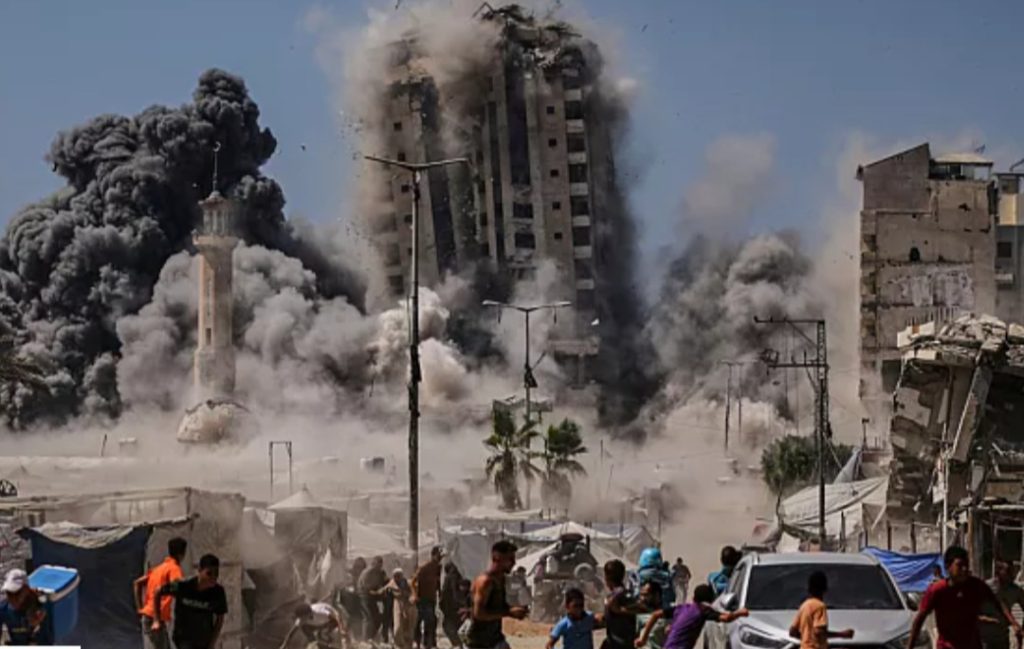
Crystal Dike
As the devastating Gaza war nears its second anniversary, Gaza ceasefire talks have resumed in Egypt’s Red Sea resort of Sharm el-Sheikh, bringing together Israeli and Hamas delegations for indirect negotiations over a U.S.-drafted peace plan.
The high-stakes discussions, mediated by Egypt, come despite ongoing Israeli airstrikes in Gaza that have left 19 people dead in the past 24 hours, according to Gaza’s Health Ministry. U.S. President Donald Trump has called for an immediate halt to the bombardment, urging both sides to seize what Washington describes as a “window for lasting peace.”
Israel’s delegation, led by senior negotiator Ron Dermer, is expected to arrive on Monday, while Hamas’ representatives, headed by Khalil al-Hayyah, arrived on Sunday. Al-Hayyah, who narrowly survived an assassination attempt in Qatar last month, is leading Hamas’ negotiating team through what insiders describe as “the most serious diplomatic push” since the war began.
Officials familiar with the talks say the current phase of the Gaza ceasefire talks focuses on a framework that includes a partial Israeli withdrawal from Gaza, a hostages-for-prisoners exchange, and the gradual handover of control of the enclave to an international authority backed by Egypt and the United States.
The U.S. delegation includes Middle East envoy Steve Witkoff and presidential adviser Jared Kushner, who are working closely with Egyptian officials to broker a phased truce deal. According to Egypt’s state-run Al-Ahram newspaper, Washington views this round of talks as “critical” to stabilizing the region ahead of a wider political process that could lead to Palestinian statehood.
Both Hamas and Israel have shown cautious optimism toward the U.S. proposal. Under the terms of the draft plan, Hamas would release the remaining 48 Israeli captives within three days, commit to full disarmament, and relinquish control of Gaza to pave the way for reconstruction and governance reform.
Israeli Prime Minister Benjamin Netanyahu said the discussions are expected to last “a few days at most,” though Hamas officials warned that identifying and recovering hostages trapped under rubble could require more time.
Egyptian President Abdel-Fattah el-Sisi lauded the renewed diplomatic momentum, calling the U.S.-led effort a “turning point” in the decades-long Middle East conflict. In a televised address marking the anniversary of Egypt’s 1973 war with Israel, El-Sisi said, “A ceasefire, the return of hostages and detainees, the reconstruction of Gaza, and the beginning of a political process toward a Palestinian state mean we are on the right path to lasting peace.”
He also reaffirmed Egypt’s commitment to maintaining the “U.S.-crafted peace system” established in the 1970s, describing it as a “strategic framework for regional stability.”
As the Gaza ceasefire talks continue behind closed doors in Sharm el-Sheikh, expectations remain cautious but hopeful. For millions of civilians trapped in Gaza’s rubble and the broader Middle East weary of endless conflict, even a temporary pause could mark the first step toward an elusive and enduring peace.
